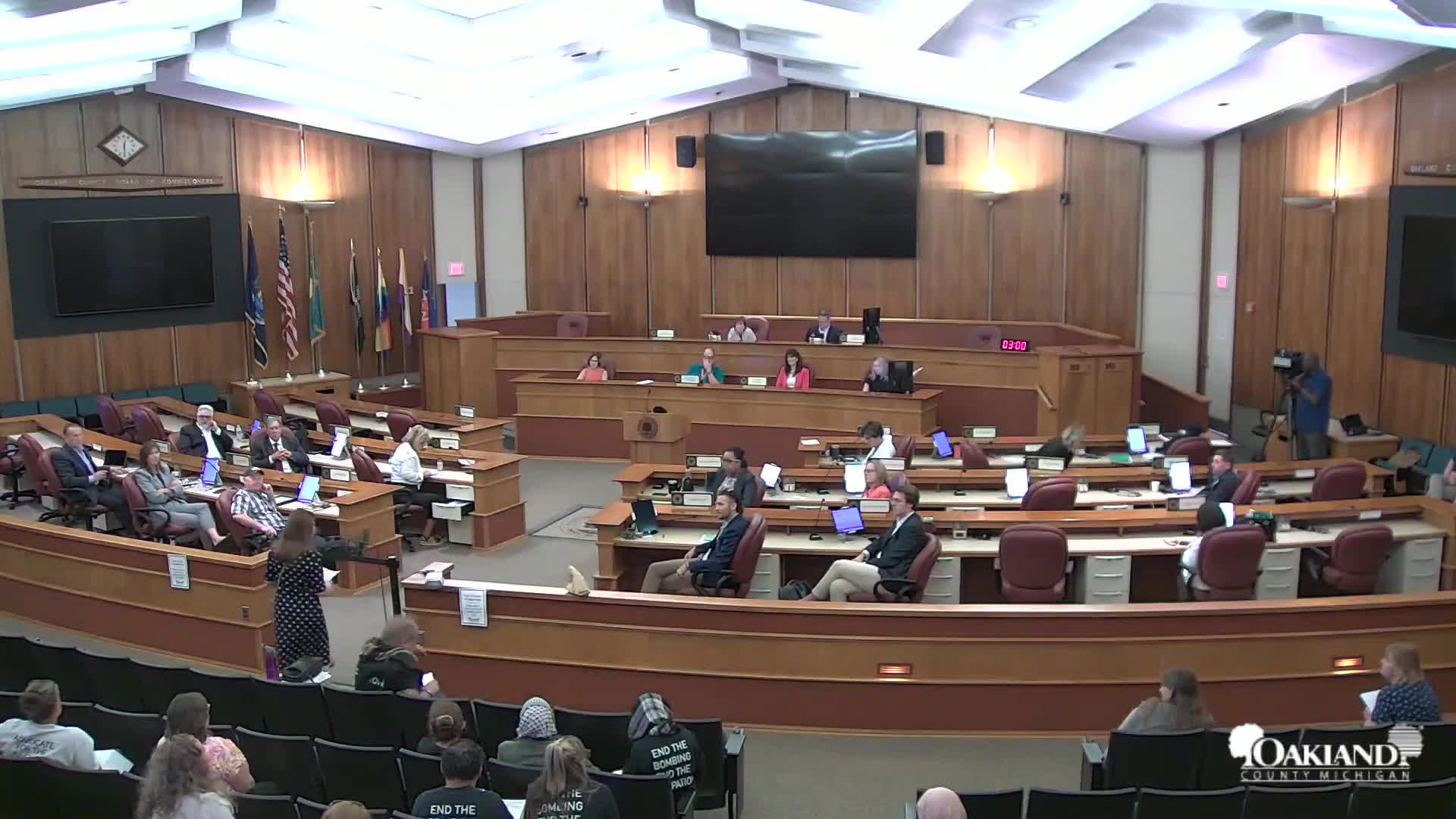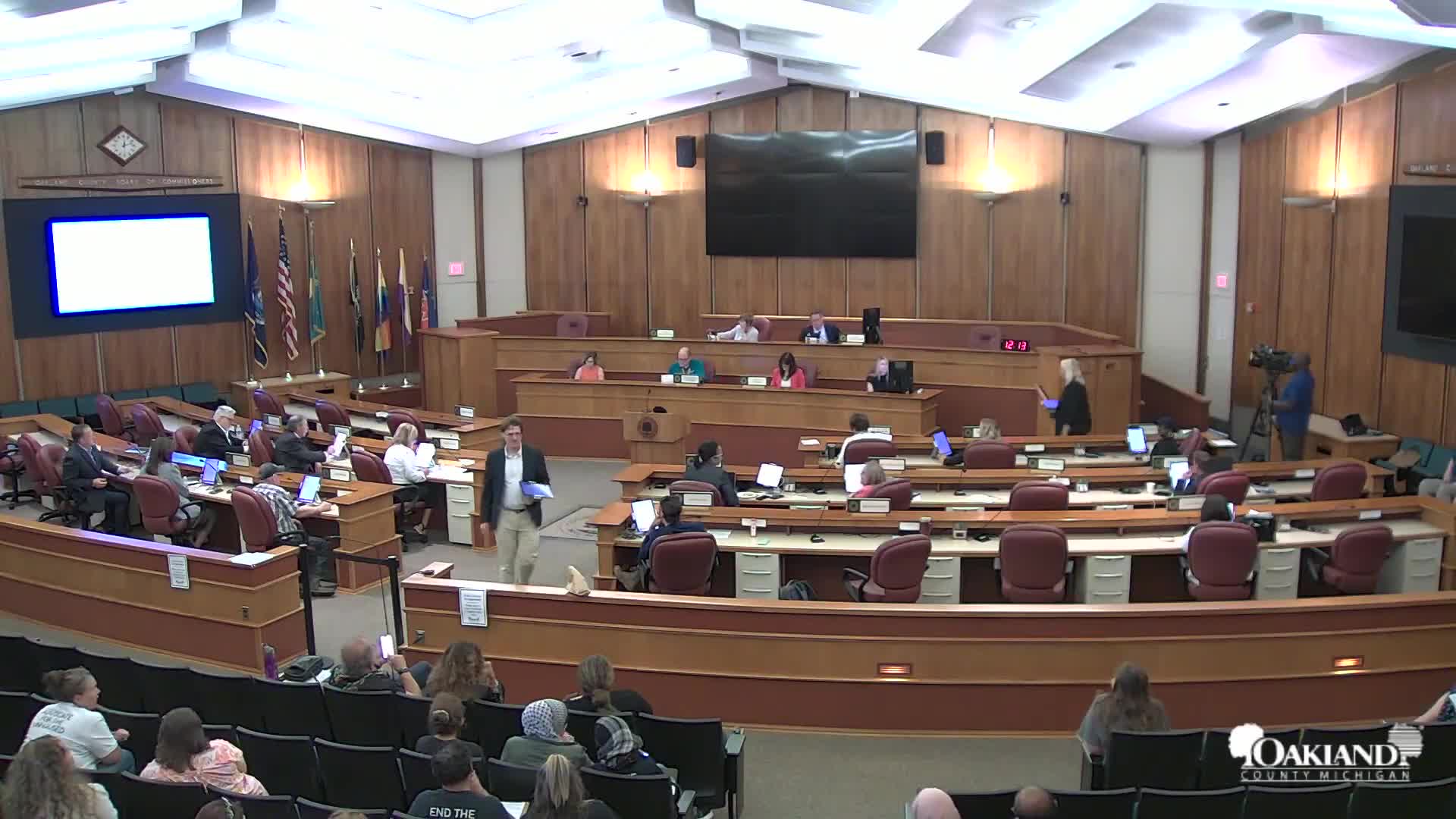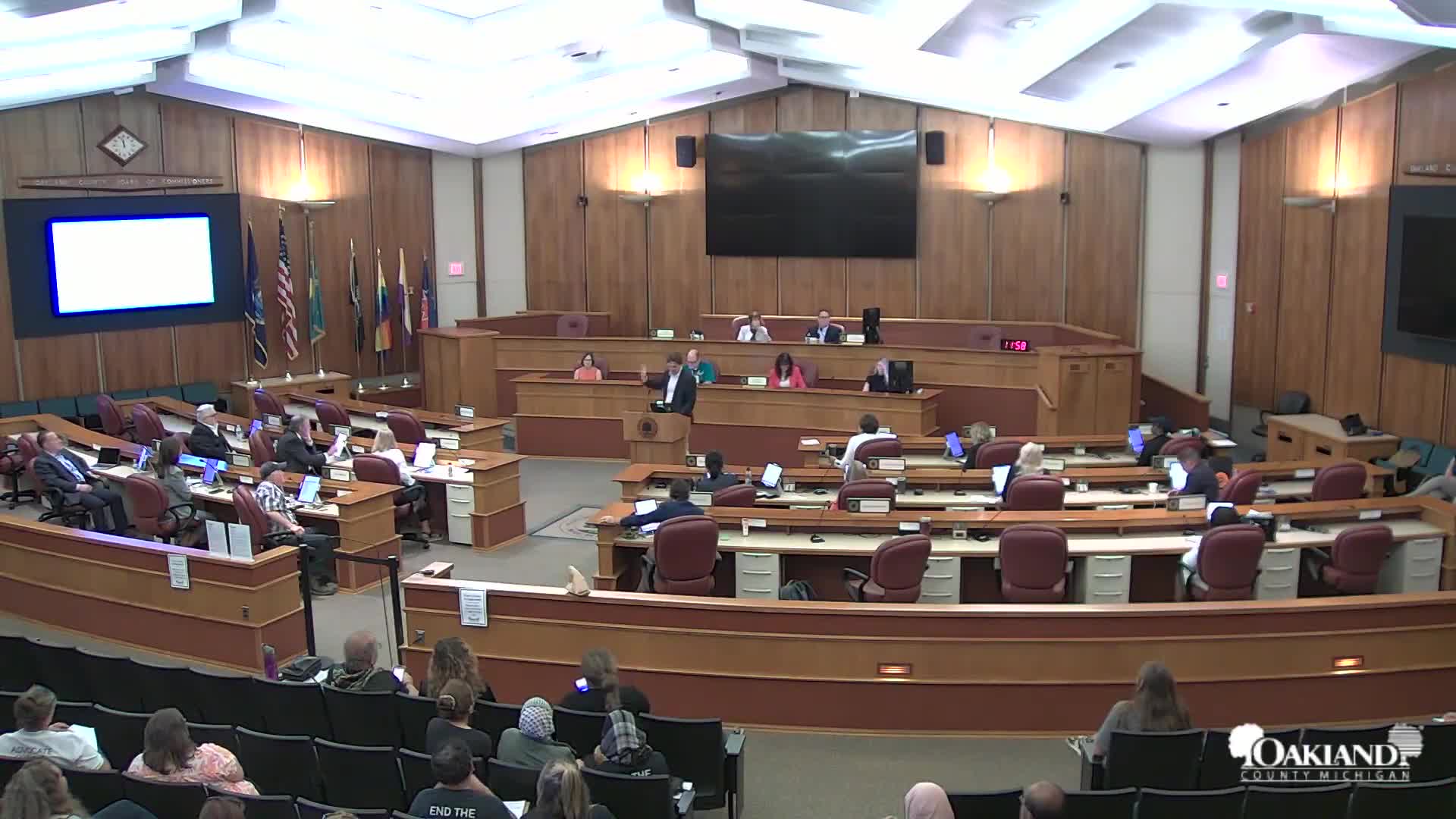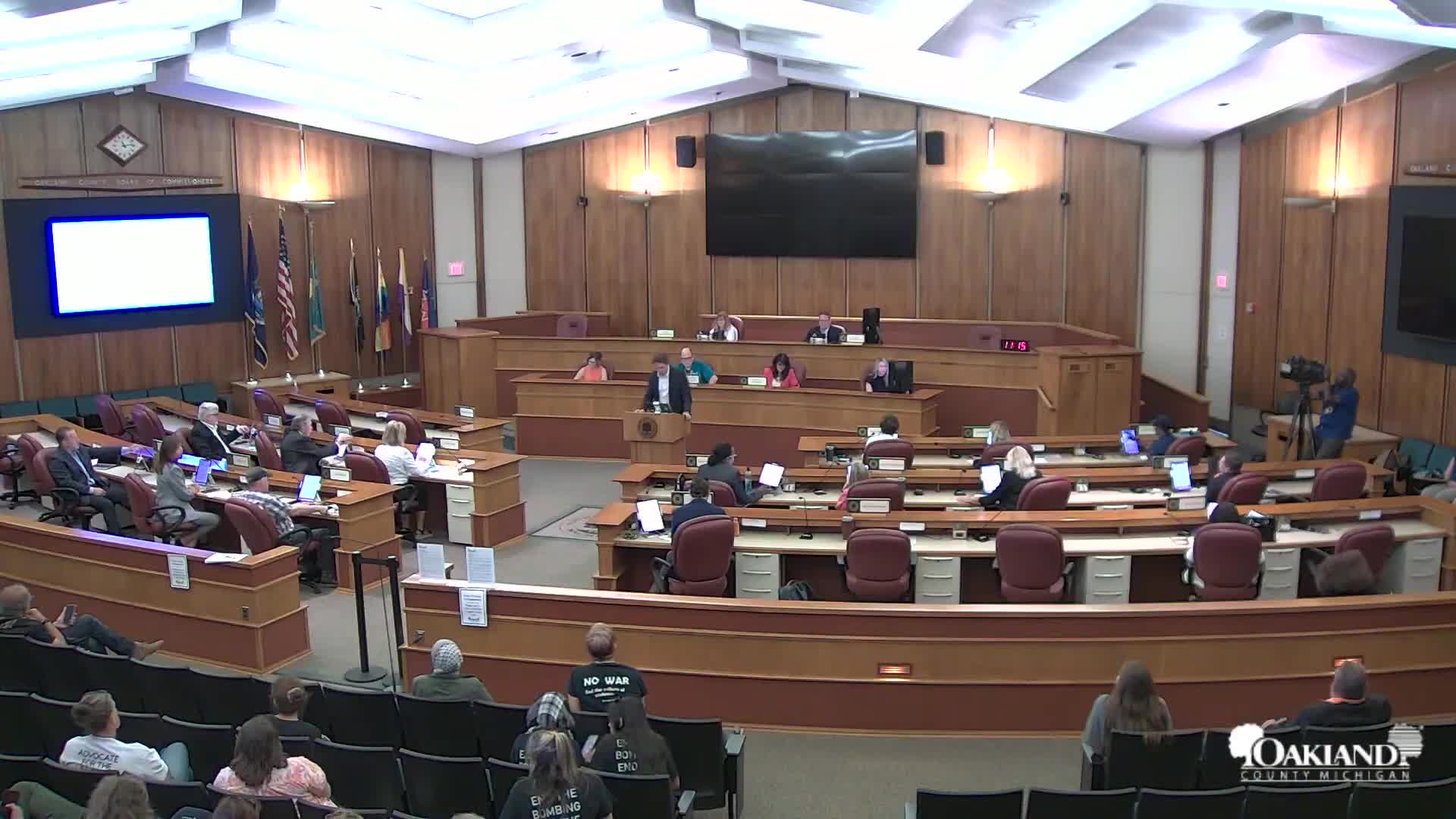Article not found
This article is no longer available. But don't worry—we've gathered other articles that discuss the same topic.

Shelter leaders urge Oakland County to invest surplus in housing and homeless services

Board approves $135,000 in additional funding for Oxford High School after-action review

Board approves rule changes and revised committee assignments amid partisan dispute

